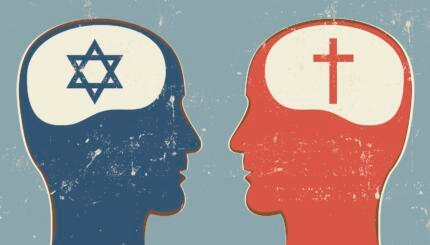We rabbis often lament about how many issues divide our people. We pray differently, we keep differently, we talk about Israel differently, etc. The truth is that while these topics make us debate with each other and cause us to affiliate with our own congregations and communities and organizations, they don’t change the fact that we’re all part of the Jewish people. The only issue that truly does divide us in the sense that it keeps us from uniting as one people is the issue of Jewish identity—what’s commonly called “Who’s a Jew.”
The 1983 decision by the Reform Movement (in North America, not in Israel) to consider those with a Jewish father and a non-Jewish mother as fully Jewish changed the rules of the game. In my first decade as a rabbi serving communities of young Jewish people (both on a college campus and at a Jewish camping agency), I’ve been asked numerous times by patrilineal Jews whether I consider them Jewish. At the end of a Birthright Israel trip a young female participant asked if I would be willing to officiate at her wedding even though her mother isn’t Jewish. As a Conservative rabbi I find these to be the most challenging questions I’m asked. My Reform and Orthodox rabbinic colleagues respond to these questions without much hesitation or difficulty. The Reform rabbi is able to cite the movement’s resolution establishing that “if the child is raised exclusively as a Jew and one parent is Jewish, then the child is recognized as a Jew in Reform communities regardless of the gender of the Jewish parent.” The Orthodox rabbi frames the answer with cut-and-dry legal wording, explaining that the definition of Jewish lineage according to (Jewish law) is a child born to a Jewish mother or one who undergoes proper conversion.
Now a mega celebrity is catapulting the topic of patrilineal descent right onto our dinner tables just weeks before the High Holidays. Rabbis might feel inclined to include this issue in their sermons this month. Gwyneth Paltrow has long been considered a Jewish actress by her fans and those in Hollywood who know that her father was Jewish. Paltrow’s mother is Blythe Danner, the actress known most notably for her roles in television’s Will and Grace and the movie Meet the Parents. Now, Paltrow has announced that she has been in the process of a conversion to Judaism since discovering her ancestors were famous rabbis. This has led to confusion among many who thought Gwyneth Paltrow was already Jewish.
Conversion is an option for patrilineal Jews who wish to remove any genetic doubt about their heritage, but it can also be an insulting suggestion. We are now facing the inter-denominational challenges that have arisen from the Reform movement’s 1983 resolution as the children of that era are now of marriage age and are having their own children. Gwyneth Paltrow will likely go through a conversion to formally (and halachically) become a member of the Jewish community (and remove any doubt that she’s 100% a Jewish celebrity), but that resolution won’t work for every man or woman who grew up thinking they were unequivocally Jewish. The mere mention of a conversion process can be taken as an insult to an individual who grew up as an active member of the Jewish people. So what are we to do for the thousands of Patrilineal Jews who don’t want to convert? Maybe we just need a big name celeb like Gwyneth Paltrow to bring this issue to the fore.
The Jewish world is full of debates. Get the latest in MyJewishLearning’s weekly blogs newsletter.
Are you considering conversion to Judaism? Sign up here for a special email series that will guide you through everything you need to know.



